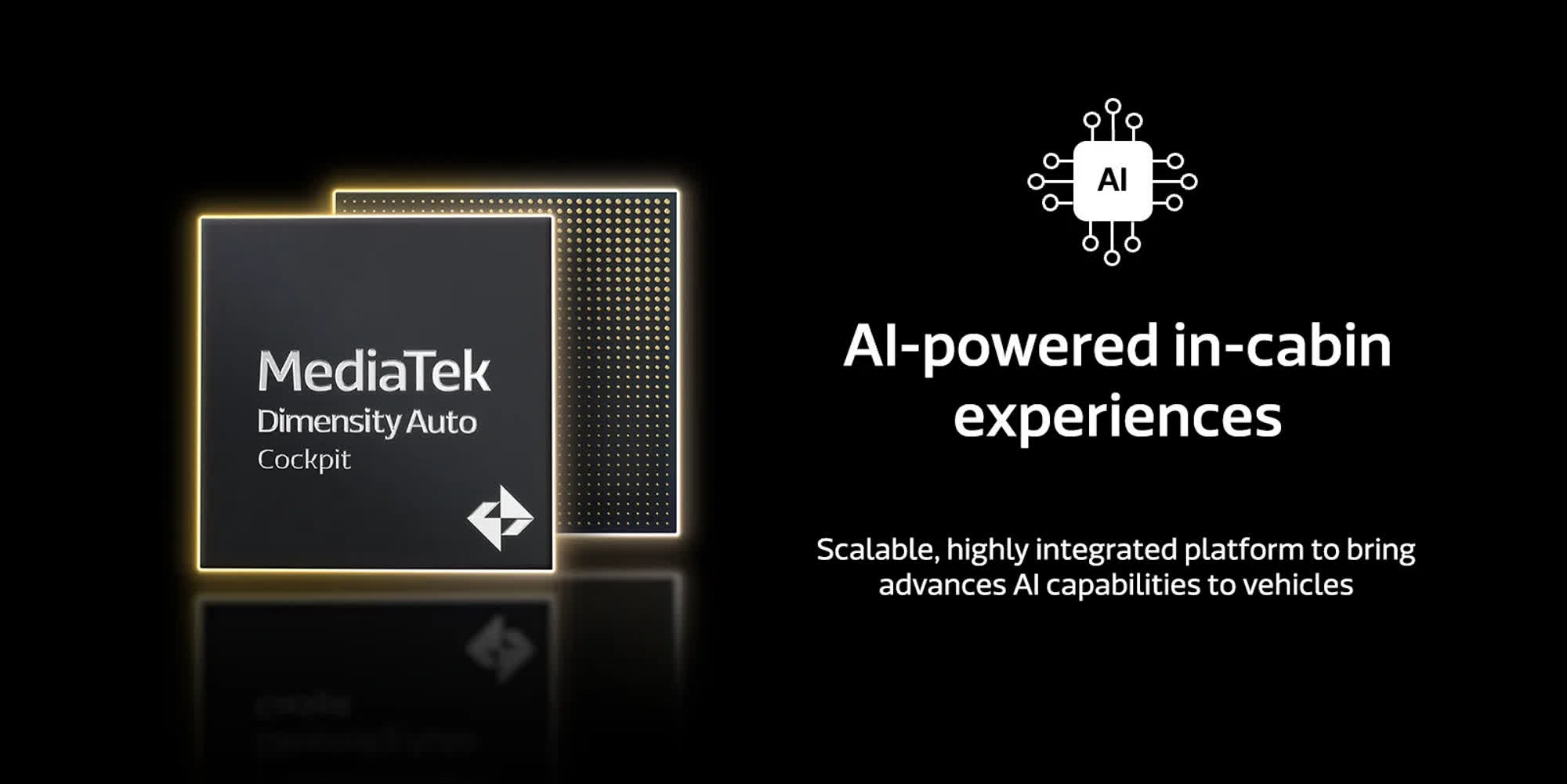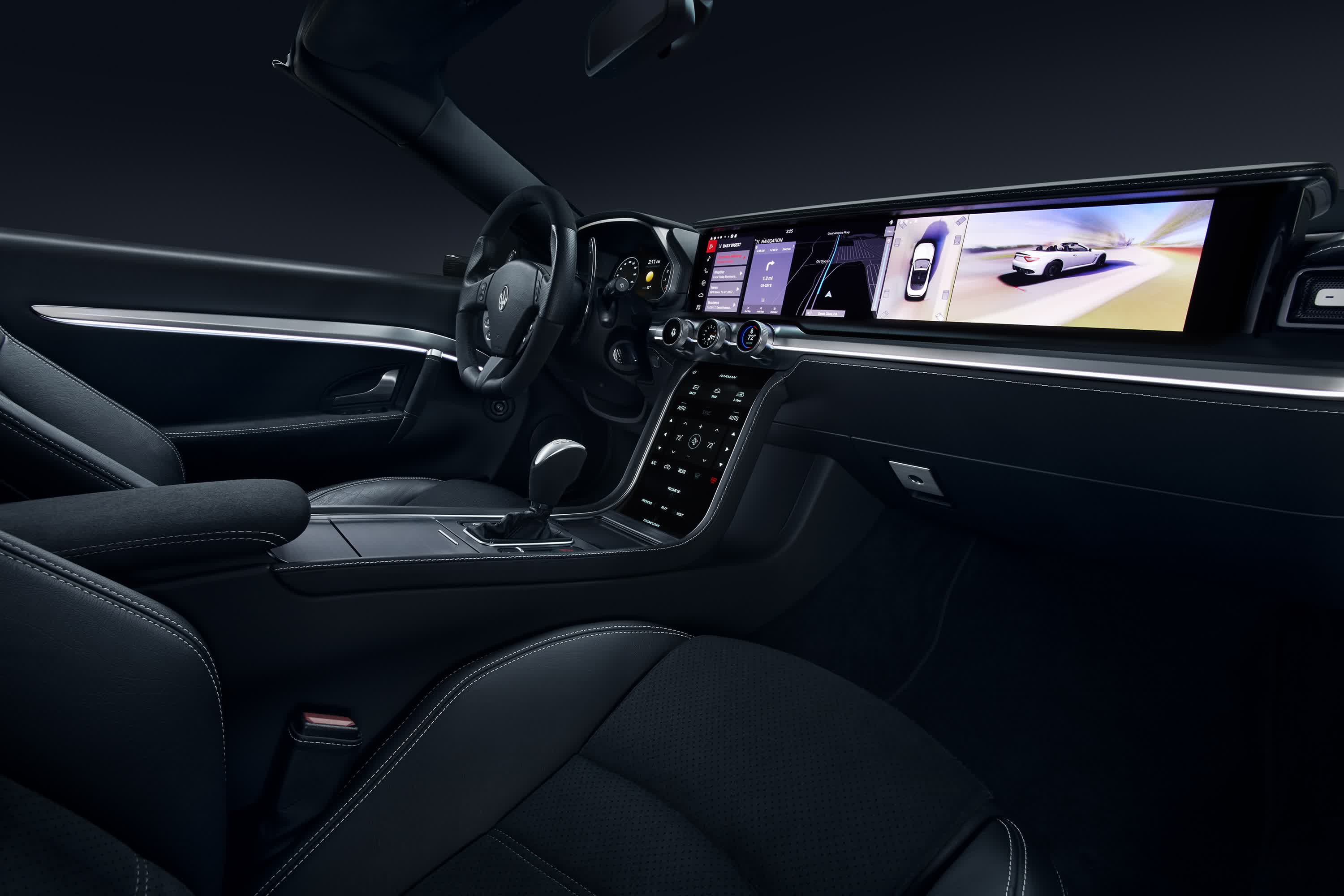A hot potato: Nvidia has been attempting to license its GPU technology to third-party chip manufacturers for quite some time. Taiwanese fabless chipmaker MediaTek has now announced a new partnership with the GPU giant to bring new "experiences" and AI edge capabilities to cars.
MediaTek is introducing a new line of SoC units for the automotive industry, featuring Nvidia's powerful GPU acceleration capabilities for in-car entertainment, AI, and other edge computing applications. The Dimensity Auto Cockpit chips were announced during the latest edition of Nvidia's GPU Technology Conference, comprising four different units (CX-1, CY-1, CM-1, CV-1) catering to a range of vehicles from "premium" (CX-1) to entry-level (CV-1).
The new platform is based on Armv9-A CPU cores and a 3nm manufacturing process. According to MediaTek, it is specifically designed to meet the demands of the automotive market. Nvidia licensed its "next-gen GPU," possibly Blackwell or another iteration, to provide the new SoCs with advanced features like ray-tracing graphics and DLSS3.
Nvidia's technology will enable AI algorithms to run directly in the car without the need for a cloud connection. Drivers will have access to LLM-based chatbots and generative AI capabilities through a unified platform encompassing both hardware and software components.

Nvidia will provide a "familiar" software platform for developers with DRIVE OS, CUDA, TensorRT, and Nsight support, enabling carmakers to integrate AI processing across various applications. Specific scenarios described by MediaTek include faster response times, enhanced reliability, a natural user interface, 3D spatial sensing capabilities, personalization, and driver identification. Next-gen entertainment is assured, with AI-enhanced video feeds and AAA gaming experiences.
The new Dimensity Auto Cockpit chipsets are highly integrated, MediaTek said, with built-in multi-camera features for a wide variety of "safety applications." Audio processing (DSP) is also included, with support for the latest voice assistants, providing drivers with an easy way to control the infotainment system without diverting their attention from the steering wheel.
According to MediaTek SVP Jerry Yu, generative AI is significantly impacting the automotive industry after revolutionizing the mobile market. Computing experiences are now more personalized and intuitive, Yu suggests, and the same revolution will occur in vehicles thanks to AI-infused platforms like Dimensity Auto Cockpit.
Meanwhile, safety authorities are advocating for car manufacturers to reintroduce physical buttons because touch screens are deemed insecure. Perhaps we should ask a chatbot to help solve that issue?
